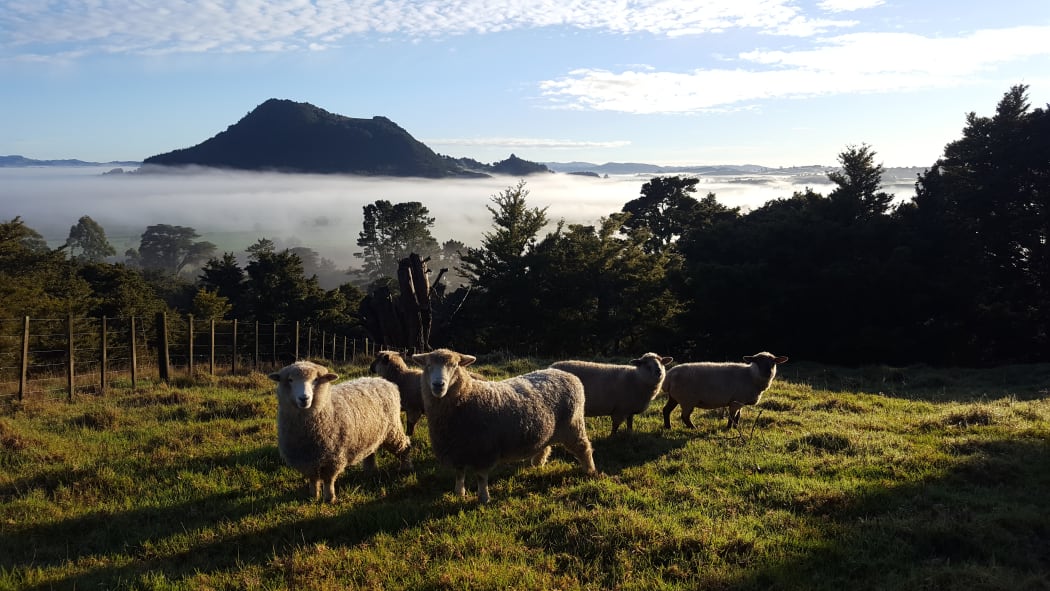
Photo: Susan Murray
Ewe scanning is underway in the north, which has seen more welcome rain this week and dairy farmers are catching their breath before calving.
It's been slightly wet underfoot in Northland for the first time in eight months. There's been reasonably good but variable rain across the region. Soil temperatures of around 15 degrees will certainly push pasture growth along. Farmers are hugely relieved and those with lowered stock levels should get through the winter fairly comfortably now, while it will still be a struggle for others. It's nearing calving time when, as one farmer told us, all hell breaks loose.
Around Pukekohe, cold weather has stayed away again this week and there has been adequate rainfall for good crop growth. Wednesday was a good day for outdoor seed sowing and transplanting but a wet Thursday and Friday interrupted those activities. Consumers should be pleased as ample supplies of many crops are available at attractive prices.
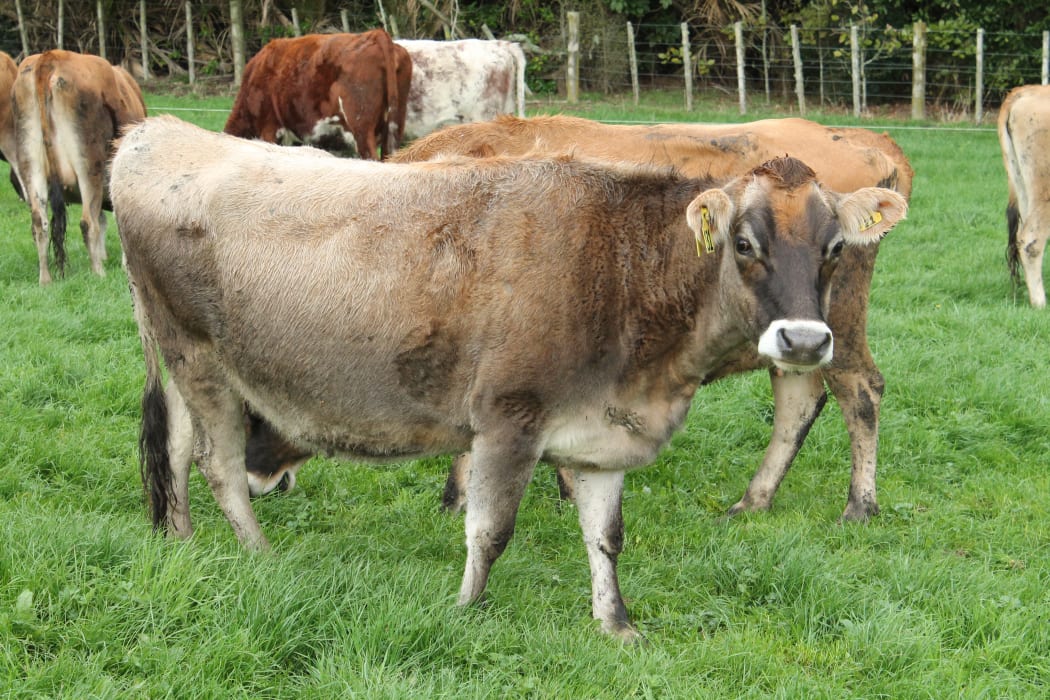
Photo: RNZ/Carol Stiles
Flooding last weekend in Waikato and Coromandel has dissipated leaving plenty of moisture about. A consultant says Central and South Waikato are recovering nicely from the drought and although farmers don't have surplus, there is enough feed. It's a different story in the Hauraki plains where there's a concerning lack of pasture. He says most farms were close to target in terms of pasture cover in time for Moving Day. Dairy farmers are catching their breath before calving in six week's time. This time of year it's normally Field Days but they've been forced online this year.
A farmer in the Bay of Plenty described this week in one word - bliss. The kiwifruit's been picked, the cows are dried off and there's been rain. The gold kiwifruit harvest is up, due to more hectarage of the variety but green is down due to the dry. The hard and skilled task of winter pruning is next but there's some uncertainty about the availability of RSE workers. While there are plenty of people around looking for work, they'll need to be trained up.
A farmer near Ruapehu says she's had 30 millimetres of rain in the last week. The temperature has increased which has been great for grass growth. Pregnancy scanning of ewes is in full swing and she's working towards set-stocking and lambing. Pockets of drought have led to a severe feed shortage. Feeding out is happening a lot earlier than normal. She's hunkering down and hoping the warmer weather will continue to push pasture growth along to get through winter.
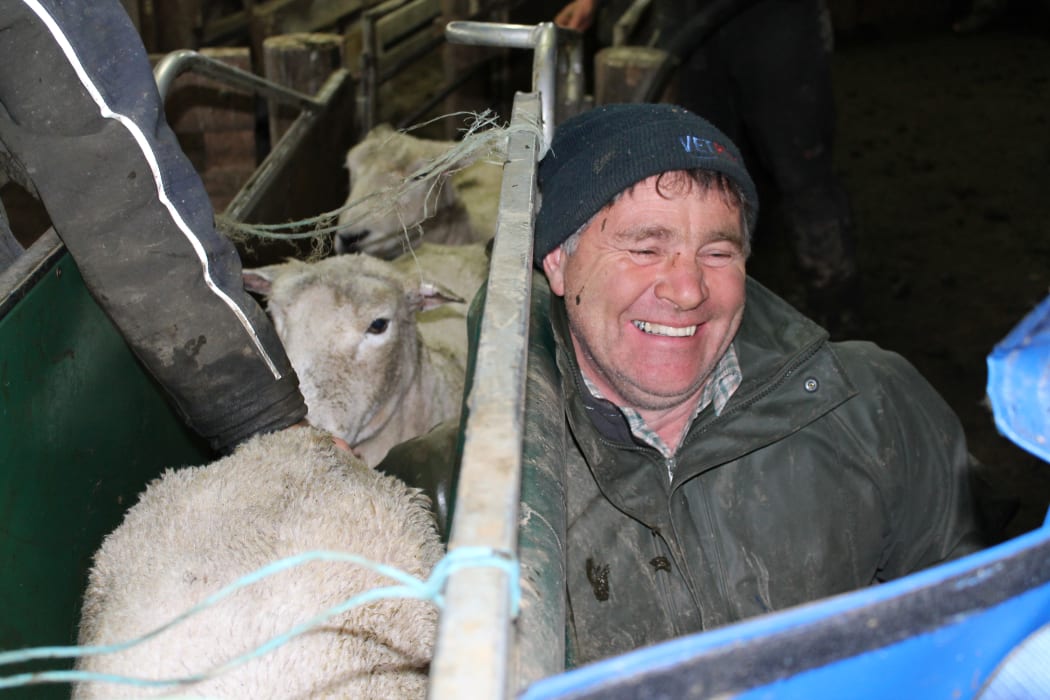
Photo: RNZ/Carol Stiles
On the East Coast, near Gisborne, the weather has been mixed with a solid two days of rain and more to come over the weekend. Farmers are still struggling with low feed supplies so balage and hay are being sourced from other regions. The first of the early scanning has just got underway.
Down the road, in Hawkes Bay, farmers were thrilled to receive nearly 80 millimetres of rain over the long weekend and there is more forecast. A farmer says it's greened up the countryside, but feed is still very short. Farmers are looking at sending stock away to graze in other regions like Manawatu or they are selling them. As scanning gets underway, he predicts a large number of dry ewes being culled this winter.
Taranaki has also had some good rain. Central and northern parts received about 100 millimetres but southern parts were not so lucky. Most dairy farmers have dried their cows off apart from the winter milkers. May was good for grass growth and pasture levels are moderate to good heading into the winter. Overall milk production for the region is about one percent down on last season.
Farmers in Manawatu have had a wet start to winter. Our contact says he poured 30 millimetres of rain out of the gauge on Friday and it's still coming. It's very quiet on the farm now the cows aren't being milked and he's heading to his first young farmers' meeting in months this week.
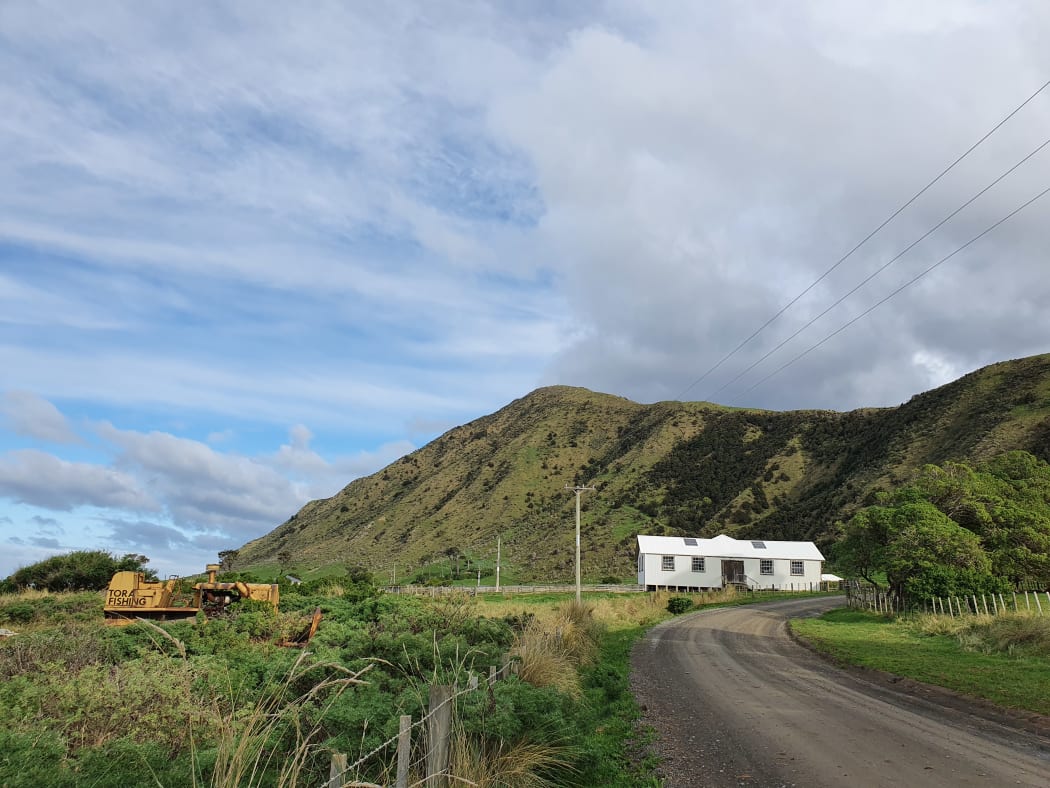
Woolshed at Tora on the Wairarapa coast Photo: RNZ/Sally Round
Wairarapa has seen some fine days and a couple of good dollops of rain. A sheep and beef farmer told us he'd escaped to Taupo and was reading a book in front of the fire. The region has pulled through the summer well. Farmers are knuckling down for winter and scanning starts in about ten days. Fewer ewe hoggets were mated this year and lamb crops are predicted to be down on previous seasons.
Over the Cook Strait in the Nelson region, it's been wet and drizzly but by the end of the week the sun was shining. The apple grower we spoke to says about 15mm of rain has fallen for the week. The apple crop has been awesome this year. Picking finished a few weeks ago and most of the packhouses have finished packing but some will go for a few more weeks yet. The first of the pruning is starting get underway on the trees.
Marlborough's had 35mms of rain which our contact describes as fantastic. It is still very much a green drought; the soil temperature is about six degrees which slows pasture growth right down. Ewe scanning is well underway; first results are showing it's about 10 to 30 percent back on last year. He says farmers will need to budget feed very carefully because the ewes need good feed cover in August when lambing starts.
Winter has arrived in Canterbury this week with a cold south-west change. It's not brought a lot of rain though. Dairy cows have been moved about the district from dairy farms to grazing blocks and farmers are now getting stuck in to winter maintenance jobs.
On the West Coast it's been a good growing week - given that it's the first week in June. Westport's had a sprinkling of rain and south Westland a bit more. The local dairy company Westland Milk Products stopped picking up milk on June 3 and has shut down its plant. With Westland's new owners having paid farmers the same as Fonterra suppliers this year, West Coast dairy farmers are in a better position to do some of those jobs they haven't been able to afford to do for the past few winters, like fencing and riparian planting. The last of the dairy culls are going to the works.
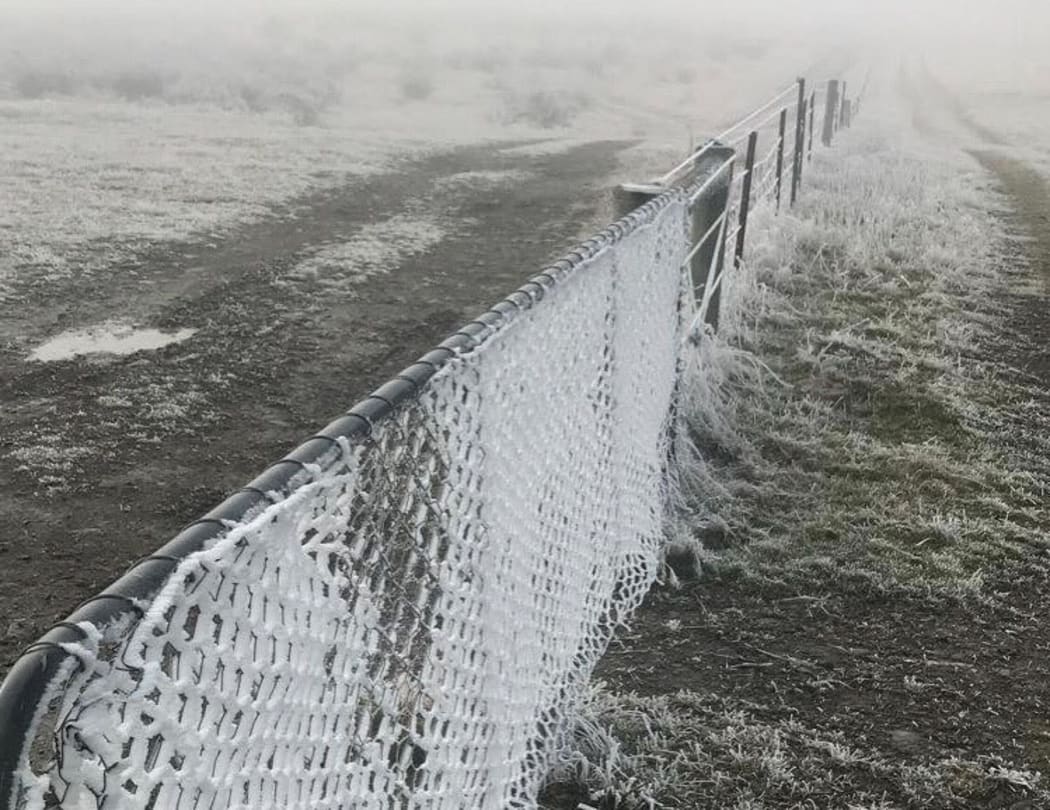
Frost in Mackenzie Basin Photo: Supplied Riley Kennedy
Frosts in Otago will have stalled grass growth but it's been dry so pasture and crop utilization has been really good as feed isn't being trampled into soft ground. Much of Otago has had nice sunny days after the crispy starts but Central Otago didn't see the sun for a couple of days this week - it's had low cloud and fog. The backlog of lambs has been moving steadily to the works - the farmer we spoke to has his last 200 due to go next week. There are still hold-ups for prime cattle and as on the West Coast some dairy farms still have culls to get away.
Southland's been cold but has had an incredible run of weather. We're told farmers couldn't have asked for a better autumn and that's allowed people to delay putting stock onto winter crops. Northern Southland's had a few frosts this week and a little rain. Some home water tanks are getting low. Sheep farmers are still trying to get stock away for processing. A few stragglers are still milking. Calving starts a month later in parts of Southland than in the rest of the country so cows will milk on a bit longer than June 1 if the conditions allow.

